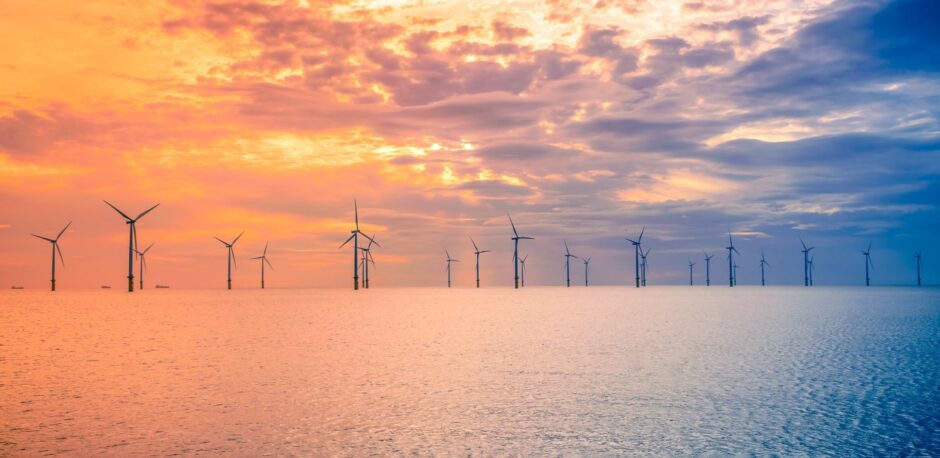
Paula Kidd, energy partner at CMS, looks at the UK Government’s plan for a Great British Energy company.
-
Some Energy Voice online content is funded by outside parties. The revenue from this helps to sustain our independent news gathering. You will always know if you are reading paid-for material as it will be clearly labelled as “Partnership” on the site and on social media channels,
This can take two different forms.
“Presented by”
This means the content has been paid for and produced by the named advertiser.“In partnership with”
This means the content has been paid for and approved by the named advertiser but written and edited by our own commercial content team.
In one of the first pieces of legislation to be introduced by the new UK Government, the Great British Energy Bill (“Bill”) was introduced on 25 July 2024 with the purpose of establishing a new public company, Great British Energy (“GB Energy”), to drive the transition to clean power by 2030. Juergen Maier CBE, the former CEO of Siemens UK, has been announced as the first chair of GB Energy.
The Bill sets out the main objectives, functions and governance of the company, which will be wholly owned by the UK Government but operationally independent. It will have four main objects:
- to facilitate, encourage and participate in the production, distribution, storage and supply of clean energy;
- to reduce greenhouse gas emissions from energy produced from fossil fuels;
- to improve energy efficiency; and
- to ensure energy security.
Key features of GB Energy are as follows:
Financial Assistance: Secretary of State to provide financial assistance to GB Energy, in any form (e.g. grants, loans, guarantees, indemnities and through acquisitions and contracts). The UK Government has committed to provide £8.3 billion over the course of this Parliament.
Strategic Priorities: Secretary of State required to lay before Parliament a statement of strategic priorities for GB Energy, which will provide a steer on where the company should focus its activities.
Directions: Secretary of State entitled to give directions to GB Energy, but only following consultation with GB Energy itself and other stakeholders as may be appropriate. The UK Government expects this power to be used sparingly, and only in cases where “a more precise, tailored and expeditious form of intervention may be needed” than may be possible under general company law as the sole shareholder of GB Energy.
At the time the Bill was introduced, the UK Government indicated that the headquarters of GB Energy would be in Scotland. Aberdeen & Grampian Chamber of Commerce quickly launched a campaign to bring GB Energy to Aberdeen, arguing that the city has the expertise, infrastructure and supply chain to support the company’s ambitions. The UK Government is expected to announce the location after consulting with the devolved administrations and other stakeholders. Regardless of the location chosen, the UK Government has stated that GB Energy will have a presence in all regions of the UK, and that it will create jobs and opportunities across the country.
Opportunities
In terms of what this means for the industry, it is expected that GB Energy will be able to engage in all aspects of clean energy projects, including design, development, construction, commissioning and operation. It will also be able to provide financial assistance to industry, local authorities and community groups.
The UK Government aims to make the UK a world leader in floating offshore wind, nuclear power and hydrogen and intends for GB Energy to:
- invest in, own and operate renewable energy projects, such as wind, solar, tidal and hydrogen, as well as carbon capture and storage technologies;
- partner with local authorities and community energy groups to roll out small and medium-scale renewable power projects, as part of the Local Power Plan (which is focussed on empowering local communities to generate and manage their own clean energy); and
- work with Great British Nuclear to deliver new nuclear projects, which the government considers essential for achieving net zero emissions by 2050.
Comment
The UK Government claims that GB Energy will help to decarbonise the power sector by 2030, and to maintain a secure, affordable and clean energy system beyond that. It also says that the company will drive innovation, investment and growth in the clean energy sector, and support the UK’s global leadership and competitiveness in this field whilst also ensuring a public benefit from natural resources. However, some critics have questioned the need for a public company to intervene in the energy market, and have raised concerns about the potential impact on competition, regulation and consumer choice. There is clearly great potential for GB Energy but further details on how it intends to implement its key strategies will be needed before the effect on the sector can be fully determined.
The second reading of the Bill is scheduled for September 5.
For further information head over to the CMS website.
Recommended for you

 © Shutterstock / Wirestock Creator
© Shutterstock / Wirestock Creator